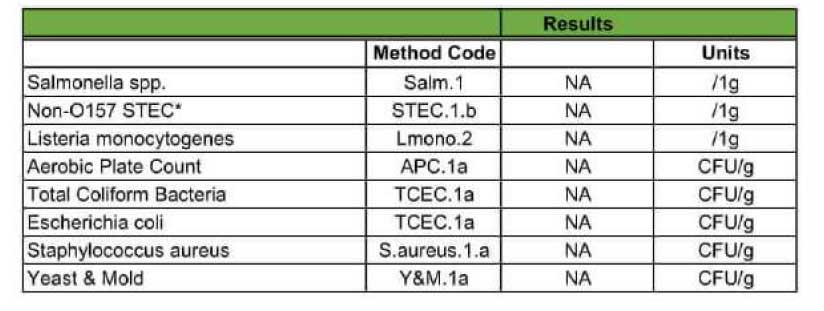Hashish is a drug crop with a extensive history in Africa. Alongside coca and opium poppy, it has been subjected to international regulate for almost a century. The International Opium Conference of 1925 institutionalised the international manage process and extended the scope of regulate to hashish.
In 1961 a new global conference was adopted to replace the present multilateral treaties for handle of narcotic prescription drugs. The prohibitionist framework it furnished for regulate of hashish was adopted by article-colonial African states. These official initiatives succeeded in driving cannabis manufacturing underground and restricting its contribution to citizens’ livelihoods. But they unsuccessful to eradicate the crop.
Paradoxically, a lot of African states that persecuted citizens for cannabis relevant offences for a long time are now advertising legal hashish manufacturing. Above the previous five a long time 10 countries have handed legal guidelines to legalise creation for clinical and scientific needs. These consist of Lesotho, Zimbabwe, South Africa, Uganda, Malawi, Zambia, Ghana, Eswatini, Rwanda and Morocco.
South Africa has also legalised the non-public expanding of cannabis plants by older people for their personal individual intake.
The hashish policy liberalisation in Africa has been brought about by two most important components. A single is the lobbying by nearby activists. Cannabis use is continue to criminalised in most African countries. But even in the most conservative ones there are emerging debates ultimately aimed at spurring hashish plan reforms.
The other aspect is the emergence of the global legal hashish sector projected to mature to almost US$200 billion by 2028. For state authorities, coverage changes are aimed at opening avenues for scarce international exchange revenue critically needed to improve stagnating economies.
But there are however coverage and simple issues demanding interest if the cannabis sector reforms are to have a favourable influence on the economic climate and citizens’ livelihoods. These include the have to have to be certain participation of common producers in the authorized cannabis sector. This is simply because the emerging regulation frameworks feel to favour corporate businesses about smallholder farmers.
Winds of modify
The liberalisation of the hashish policy in Africa is mostly for production for medical and scientific uses. Production, trade and usage of cannabis outside the house of these functions stay criminalised. The generation by quite a few smallholder farmers, who traditionally had been custodians of the cannabis plant and expertise, is not protected by the new regulations. It indicates their cannabis associated livelihoods are however in contravention of the legislation.
Between other circumstances, producers must acquire a license from state authorities. There are numerous varieties of licenses and charges for cannabis manufacture, distribution and investigation. These can assortment from US$5,000 to US$50,000 in Zimbabwe. In South Africa the gazetted service fees selection from R9 200 (US$579.27) for an export permit to R25 200 (US$1,586.69) for the manufacture permit.
The maximum licence fees have been noted in Lesotho and Uganda. In this article, they array from hundreds of thousands of pounds to a few of million pounds.
The ordinary farmer in these countries simply cannot find the money for these kinds of charges.
Supplemental necessities include tax clearance certificates, lender assures, compliance with cultivation tips and safety guarantees. For authorities, these preconditions are developed to protected an finish-product that could be effortlessly “abused” if not thoroughly controlled. They seem to be aimed also at making sure that governments do not eliminate on tax revenues from the emerging field.
Nevertheless, the limited scope of lawful production, the higher license costs and business established-up expenses and other circumstances are probable to restrict participation of a lot of smallholder producers who deficiency assets to set up legal cannabis businesses.
The rising photograph
We are concerned in a pan-African exploration challenge which aims to produce a further being familiar with of hashish in Africa. We emphasis not only on its “traditional” uses, but on its present-day expansion as an economic dollars crop, and resource of livelihoods in a worldwide context exactly where drug coverage is in flux.
Operate jointly by the universities of Bristol and Cape Town, the undertaking is collecting new empirical details in Nigeria, Kenya, Zimbabwe and South Africa. This will be used to take a look at the historical and modern day put of hashish in African rural and city settings.
Our exploration also entails capturing the activities of common citizens, further than the formal narrative of health-related and scientific generation.
Our preliminary observations exhibit that the risk of corporate capture of the lawful cannabis industry, and exclusion of smallholder producers, is major. Due to the fact the license expenses are significant, several smallholder producers are unable to afford them. This leaves corporate businesses as the major holders of licences.
In Uganda, for instance, only 1 firm is at the moment certified by the authorities to create health-related cannabis. The rigorous rules consist of a minimum amount funds of US$5 million and a bank assurance. This is evidently a deterrent to most aspiring producers.
In Zimbabwe, the government licensed dozens of new investors for cultivation and processing of health care cannabis in 2021. The beneficiaries are set up agribusinesses and significant-scale commercial farmers.
Identical worries in Malawi and South Africa led tiny farmers to protest towards the licensing approach in November 2020 and April 2021. Jacob Nyirongo, the chief government officer for the Farmers Union of Malawi, argued:
The issue is, if you purchase a license at $10,000 what sort of marketplace selling price for cannabis (need to) a farmer (get) to make a financial gain?
Other disorders connected to licenses are also hurdles for smallholder producers. For South Africa, candidates need to comply with certification, be registered, and offer law enforcement clearance, between other problems. Police clearance, in particular, may have an effect on individuals with past prison records for the illegal output, possession or use of cannabis.
Towards an inclusive hashish potential
Early insights from our study display an emerging legal cannabis market with a confined purpose for smallholder producers. This boundaries the industry’s potential to contribute to livelihoods of the very poor and the majority a lot more widely.
Further more, the limiting of lawful hashish creation to professional medical and scientific reasons excludes creation things to do of many existing smallholder producers. This perpetuates their criminalisation. It also results in a twin model where by proven corporations benefit from the reforms though little producers’ activities continue to be outlawed and suppressed.
Legalising hashish creation for clinical purposes is all incredibly perfectly. But guaranteeing the participation of common citizens and producers in the field is the huge challenge struggling with African states. The risk of corporate seize of the sector is a real probability.
This posting is republished from The Discussion less than a Artistic Commons license. Read through the initial report.




